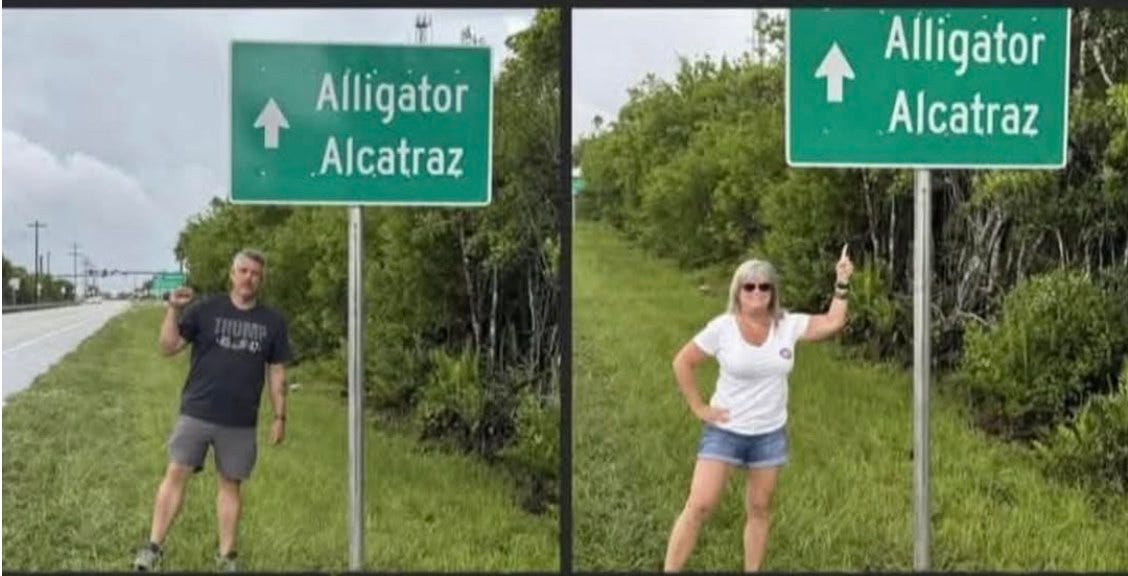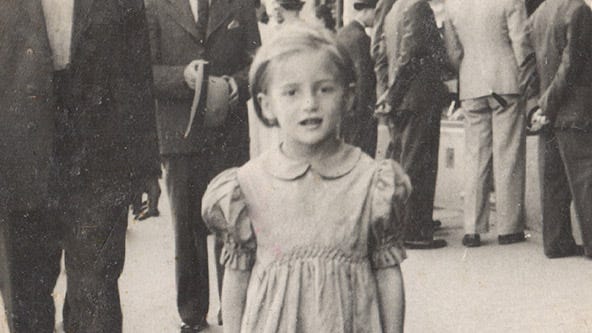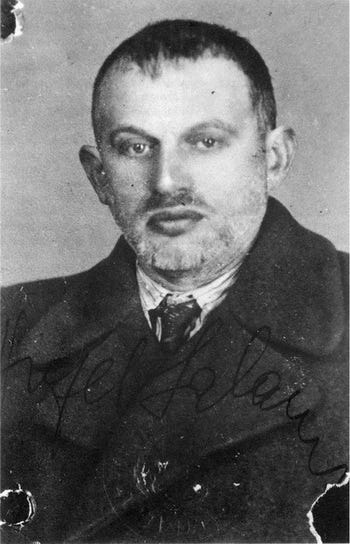Book Review and Analysis: Night by Elie Wiesel
His Memoir Has Always Been Necessary to Read. Today It is Vital.
To celebrate summer 2025, I am offering a paid support special. Until Labor Day, all paid support is 50% off forever. You can sign up for paid support or upgrade your current free subscription below. All paid support goes toward my teenage daughter’s future higher education.
“‘Humanity? Humanity is not concerned with us. Today anything is allowed. Anything is possible. . . .’”1
Chlomo Wiesel uttered that disquieting and blunt proclamation to his 15-year-old son Eliezer after arriving to Auschwitz Concentration and Extermination Camp. That was over 80 years ago. Chlomo’s observation sadly remains evergreen.
The teenage Eliezer became the Nobel Peace Prize winner Elie Wiesel. Once he told an interviewer that humanity still has not achieved enlightenment from its past atrocities and hostilities. Crimes against humanity and genocide continue into the 21st century worldwide: Darfur, Sudan; Ukraine; Gaza and the United States of America. A 2022 editorial by Jewish Community Voice declared that the phrase “never again” remains unheard and unacted upon.
Along with the kidnappings of undocumented immigrants, legal residents and U.S. citizens, the U.S. government continues to fund the state of Israel as it commits genocide in Gaza as noted last year by Amnesty International. Now Israel’s Prime Minister Benjamin Netanyahu and his government plan to put surviving Gazans in a concentration camp.
Back in the U.S., the federal government's dismissal of human rights continues with its death camp in the Florida Everglades. Videos and articles reveal inhumane and disease-ridden conditions. Some Americans who would have thrived in Nazi Germany have had photos taken of themselves before the death camp’s highway sign,
Humans’ cruelty against fellow humans has always made it necessary to read Wiesel and watch his lectures and interviews. Now it is vital. The best Wiesel book to start with is his first memoir Night.
Originally published in French as La Nuit in 1958, Wiesel waited a decade before he could address his experiences in Auschwitz, Birkenau. Buna and Buchenwald.2 Those memories too nightmarish. Too gruesome.
When he finally could write, his produced his earliest effort in Yiddish. It arrived at 900 pages. Trimmed and sculpted into 109 pages. Elie Wiesel's slender memoir captures the full brutality and monstrosity documented in his 900-page early draft. That slenderness and minimalist style heightens the hideousness and the shame of those who remained silent, complicit and inactive during The Shoah.
Night is narrated by the 15-year-old Wiesel and begins with his life in 1941 when he and his family resided in the Transylvania town of Sighet nestled in the Carpathian Mountains. The opening sentence centers on Moshe the Beadle. Moshe works as a caretaker for a Hasidic synagogue and is a foreign Jew to the Jewish Sighet town. Though sharing the same identity, the town views Moshe as an outsider.
The reader learns of Wiesel’s deep Orthodox Jewish faith and studies. Though he is still too young to do so, he asks Moshe to instruct him in Kabbalah. Those lessons end when Hungarian police expel Moshe the Beadle and all foreign Jews from Sighet. The police then transfer Moshe and his fellow detainees to the Nazi Gestapo in Poland.
Months later Moshe returns, but “[he] had changed. There was no longer any joy in his eyes. He no longer sang. He no longer talked to me of God or of the caabbala, but only of what he had seen. People refused not only to believe his stories, but even to listen to them.”3
Those stories included the Gestapo using babies for target practice after forcing the adults to dig their own graves. Only by acting dead could Moshe escape and return to Sighet. Because the town residents did not want to listen to Moshe, life continued as if the world around them was not imploding into a nightmare. Slowly life became too heinous to ignore and the residents—foreign and naturalized—suffered the same fate as the Nazis increased their murder of European Jews as they were losing World War II.
Wiesel’s crystalline and vivid prose creates a tight and compelling pace despite the visceral terrors cocooned in his words. He takes the reader step by step on how he and his family that had included his mother Sarah and his sisters Hilda, Beatrice and Tzipora were forced into a ghetto and then a smaller ghetto before being crammed into a small cattle car to Auschwitz. While his older sisters Hilda and Beatrice had managed to survive, his mother and seven-year-old Tzipora were sent to the gas chamber and crematorium.
Wiesel manages to stay with his father through every death camp and on their death march to Buchenwald. Living only on paltry thin soup, bread and water, they are forced to do physical labor on little nutrition and calories. Wiesel shares how the abominable condictions caused he and most of the other inmates to lose their empathy and feeling. Survival—physical, mental and emotional—is all that matter.
Midway through Night, Wiesel shows how he reacted to his father being beaten by a Kapo:
Another time we had to load Diesel engines onto trains supervised by German soldiers. Idek’s nerves were on edge. He was restraining himself with great difficulty. Suddenly his frenzy broke out. The victim was my father.
“You lazy old devil!” Idek began to yell. “Do you call that work?”
And he began to beat him with an iron bar. At first my father crouched under the blows, then he broke in two, like a dry tree struck by lightning and collapsed.”
I had watched the whole scene without moving. I kept quiet. In fact I was thinking of how to get farther away so that I would not be hit myself. What is more, any anger I felt at the moment was directed, not against the Kapo, but against my father. I was angry with him, for not knowing how to avoid Idek’s outbreak. That is what concentration camp life had made of me.4
Along with the physical death surrounding him, Wiesel encounters death of his belief in God along with the death of his childhood. He describes this during his first night at Auschwitz. Wiesel writes that his faith had joined the bodies incinerated in the crematoriums before him that spit smoke and flames.5
Three months before the United States liberated Buchenwald, Chlomo developed dysentery. His last word was his son’s full name Eliezer.6 Though he and his son had escaped death their first night in Auschwitz, Buchenwald cremated him. Wiesel thinks his father may have still been alive when he was taken to the ovens.7
Three days after liberation, Wiesel looks at himself in a hospital mirror. It’s the first time he had seen his face since the ghetto: “From the depths of the mirror, a corpse gazed back at me.”8
Wiesel’s memoir must be mandatory reading for not only adults and high school students but the summer read for incoming college students. The grotesque reality of humans’ capacity for evil and barbarity that Wiesel recreates in Night is why the state of Iowa banned it in 2023 and the Philadelphia school district made a high school librarian take down a Wiesel quote. The fragility of accepting human truth is worse for book banners than history’s savagery and evil.
Read Night not only to demonstrate resistance and rebellion but to deepen and strengthen your own humanity, empathy and morality. Wiesel passed away in 2016, but we can prove to him despite efforts to the contrary, we are learning and acting so “never again” is not just an empty phrase.
Elie Wiesel, Night, Trans. Stella Rodway, 1960, New York: Bantam Books, 1982, 30.
Robert McAfee Brown, Preface to the Twenty-Fifth Anniversary Edition, Night, v.
Wiesel, 4.
Wiesel, 52.
Wiesel, 32.
Wiesel, 106.
Wiesel, 106.
Wiesel, 109










Beautifully done. I will write about the novels again--and particularly NIGHT when I revisit this post that deals with "The Survivor Dilemma": https://innerlifecollaborative.substack.com/p/the-survivor-dilemma
Would love your thoughts, Laura.
Mary, I reread your essay. Again your beautiful prose humbles me and teaches my lessons. I attended Molly Jong-Fast's conversation with NPR's Peter Segal for her book tour when she came to Evanston. I have always thought like her that this wicked regime has weaponized anti-Semitism to achieve its vicious ends while harming and working to destroy the Jewish, Muslim, and immigrant communities.
I never felt I had the ethos and credibility to comment on your post when it originally ran and about survivorship because I am a gentile and Catholic. Outside of my health and disability, I have never felt the full threat to my existence based on my ethnic and religious identity as the Jewish community has for centuries.
The only time I felt the pangs of a survivorship of a different kind was after my good friend was killed by a hit-and-run driver in 2008. Murph/Mike was such a good person ans taken too soon. I couldn't understand why he was taken so soon and I, someone who is not, was left alive. I read Job and Ecclesiates months after he died. I've been reading them again after the demon's reelection.
Wiesel is one of my favorite writers, activists and thinkers. He is so needed now. Sadly when he was alive, his prophetic words did not get through to enough people worldwide. Have you seen Mandy Patinkin's and Miriyam Margolyes recent videos calling our Netanyahu and the Gaza genocide? Stripped my heart. Available DuVernay shared the video of Patinkin on her Notes page last night. His last words left me with no words.